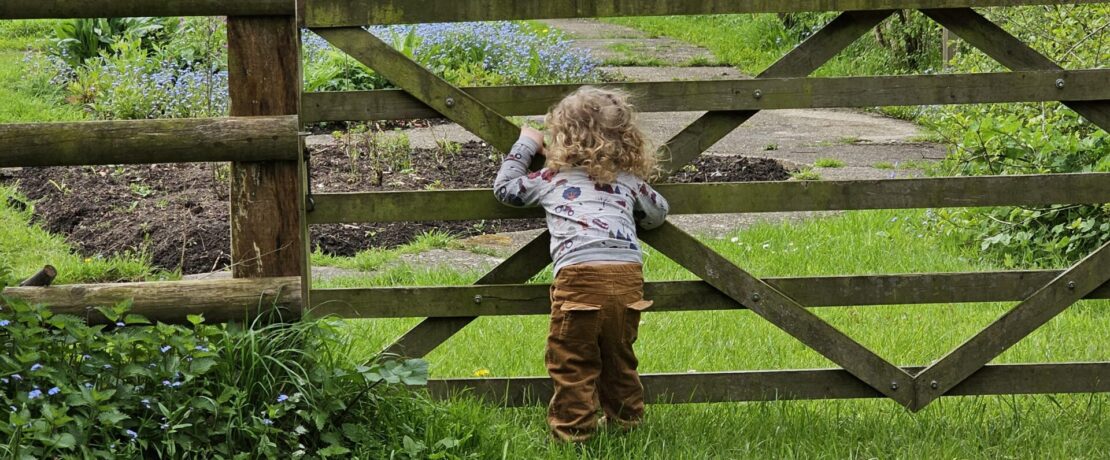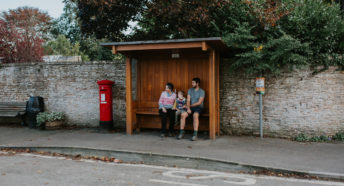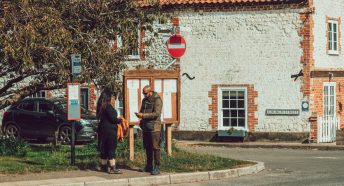Five things I learned about the countryside after becoming a dad
An abundance of green space and quiet makes the countryside a wholesome place to live. But it’s not without its challenges, especially if you’ve got a toddler! Here are some of the things I’ve learned about having a young family in the countryside.
Let me start by making it clear – living in the countryside is a privilege in many ways. We’re surrounded by fields, the air is (mostly) clean, and the nights are quiet. We’re afforded access to green space where many aren’t, and in general, it’s a wonderful place to live. But having a child has spotlighted some of the issues that the countryside faces as well. Here are some of the things I’ve learned so far.
1. Access to nature is priceless
I’m a big proponent of connecting with nature, having written about it for CPRE before. While many children are born with a fascination for the natural world – especially insects – this is sadly forced out of them as they age. As biologist and insect expert Dave Goulson puts it: ‘We need to make sure that young people have regular opportunities to interact with nature, so they do not grow up regarding (things like) insects as alien, unfamiliar, and scary’.
Living in the countryside means that nature is on our doorstep, all the time. It’s effortless. My son is often woken up by cockerels at dawn, and our daily walks are replete with wildlife. Almost everywhere is green space in the countryside.
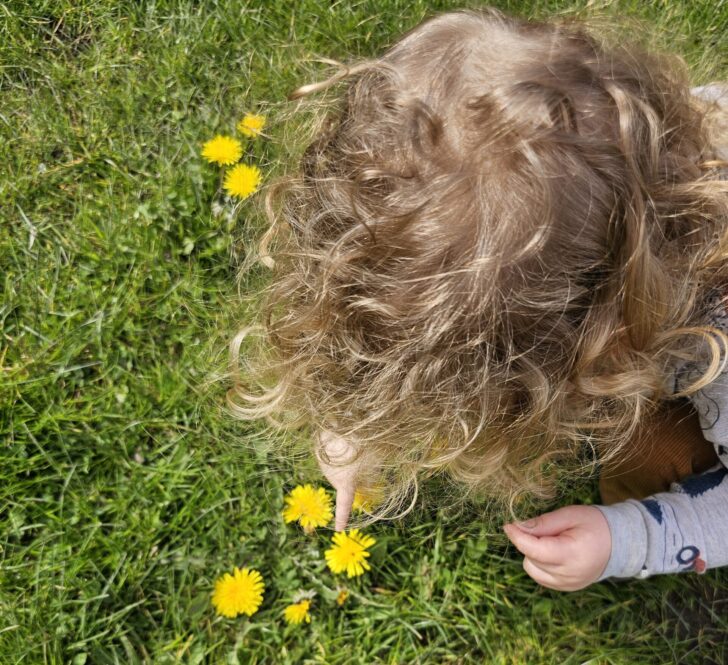
We regularly encounter farmland, so he understands where our food comes from, and how it’s processed. He sees horses and sheep grazing on pasture, as well as hedgerows and verges with wildflowers. Seasons mean something to him, as a result of this readily available access to green space.
Don’t get me wrong, the countryside isn’t quite the wildlife-rich haven it once was. As David Attenborough warned in the 2023 documentary Wild Isles, the UK is severely nature-depleted. We’ve lost 40 million farmland birds since the 70’s, our insects are disappearing at an alarming rate and 98% of our meadows are gone. But if the countryside continues to nurture my son’s interest in the natural world, then he might just grow up to be a future protector of it – and that’s exactly what our world needs.
2. But there’s a lot of car reliance
Amenities are few and far between when you live in a small village. The nearest supermarket is eight miles away; the same goes for the train station. The nearest city is 26 miles away. Yes, this might be part and parcel of living in the countryside – but it really shouldn’t be – and it reflects a struggling rural economy.
Car dependency is a big problem in the context of climate change and the cost of living. It’s not just a problem in rural areas either. Poor public transport is a key cause, and CPRE produced a report in 2021 which argued the case for a bus in ‘every village, every hour’ to tackle over-reliance on cars.
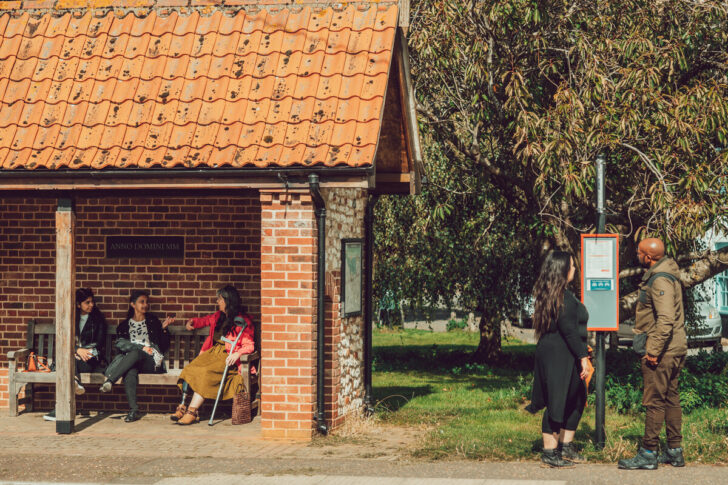
Facilities and amenities are few because of a lack of investment, jobs and affordable housing. Young people are driven out of the countryside to study, or find work and as a result, only the most essential amenities remain. it’s all a vicious cycle. Many villages don’t even have pubs anymore, although village communities have been mobilising to keep them alive.
There are things we can do to keep our son entertained in the local countryside, but we want to give him a variety of experiences, most of which are miles away, and we’ve generally no choice but to drive. When you multiply that by all the other families in rural areas with poor public transport – that’s a lot of pollution, and a lot of money that could be supporting a proper rural public transport service.
3. The starry countryside skies are joyful
Few things capture the imagination of a child more than a starry sky. Sadly, truly dark skies are a privilege afforded to few as light pollution intensifies.
But here in the countryside, we take it for granted somewhat. One of my son’s first fascinations was with the moon and the stars, and being able to bask in the splendour of the night sky has to have been a huge factor in that. Meanwhile, in some urban areas, nights and weeks pass with barely a glimpse of a single star.
Truly dark skies are a window to the great unknown. On some nights we even see the milky way, giving my son the opportunity to marvel at the vastness of the universe; the mysteries of life and the many, many questions to which we are yet to find answers. This makes the countryside an exceedingly special place to raise a child.

However, every child (and adult) should be able to experience nature in all its visceral glory – whether that’s through having the opportunity to live or visit the countryside, or by living in cities with suitable lighting policies.
4. People work hard to create countryside communities
It might on the surface feel like there isn’t much going on in rural areas, but villages up and down the country have a network of heroes who work hard to keep community spirit alive.
Having attended many parish council meetings in my village, this is only too clear: seasonal festivals, street parties, art and craft fairs and warm hubs are some of the amazing things that come from the hearts and minds of passionate countryside residents.
This gives my son opportunities to meet other kids his age and helps us all integrate with the community. My son loves the Christmas light switch-on, and walking around the village enjoying the creatively designed scarecrows at the annual Scarecrow Festival.
With very little funds, generous volunteers are striving to engender a sense of togetherness; giving children and adults alike opportunities to socialise and helping to care for the vulnerable. It’s truly heartening.
5. Unfortunately, there’s a lack of diversity
I want my son to grow up with an open mind, having been exposed to a plethora of different cultures and traditions, because to me, that’s what being a human being on this giant planet is all about.
But, if I took him to a big city, he would see more cultural diversity and expression in a day than he would in five years in the countryside. Depleted rural economies and alienation have squeezed cultural vibrancy out of rural areas.
Much like the fact that the majority of Ferrari owners are rich and that there are nearly twice as many men than women in parliament – the majority of the countryside is white. These are not coincidences; what binds these realities are barriers, whether they be financial, cultural or otherwise prejudicial.
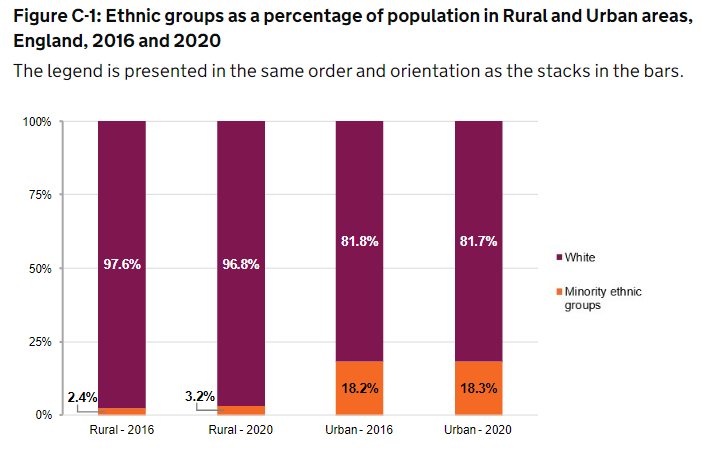
We cannot shy away from the fact that something isn’t quite right. Thriving rural communities need investment, affordable housing and jobs to incentivise young people to stay, and we need to do more to encourage a broader spectrum of people to live here. Sometimes it all just feels a bit frozen in time.
I’d love my son to stay in the countryside, but if if things remain as they are – in stasis – there’s always a danger he’ll want to leave. The countryside is beautiful, but with a lack of jobs, public transport, entertainment or cultural diversity, the scales might get tipped.
Weighing up
The countryside is special. That’s why CPRE, its volunteers and supporters work so hard to protect and enhance it. Raising a son here continues to be a privilege with ready access to green space, fresh air, and peace – as well as to community events and socialisation opportunities.
But it’s not clear cut. Countryside communities need investment, and we need to expose and challenge the barriers that are preventing thriving and diverse rural communities. If we don’t tackle the myriad issues that rural areas are grappling with, we face a continued exodus of young people, where skills and knowledge get concentrated in towns and cities and countryside communities lose their dynamism.
Whatever choice my son makes when he grows up, I just feel happy and lucky that his start in life has been lifted by access to green space, dark skies and nature, and I look forward to the day that this is an option for everyone.
